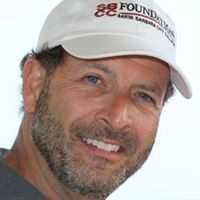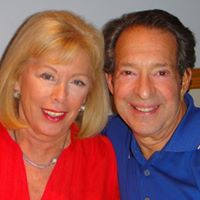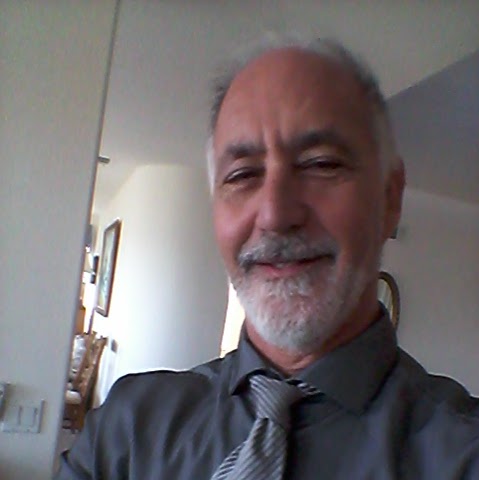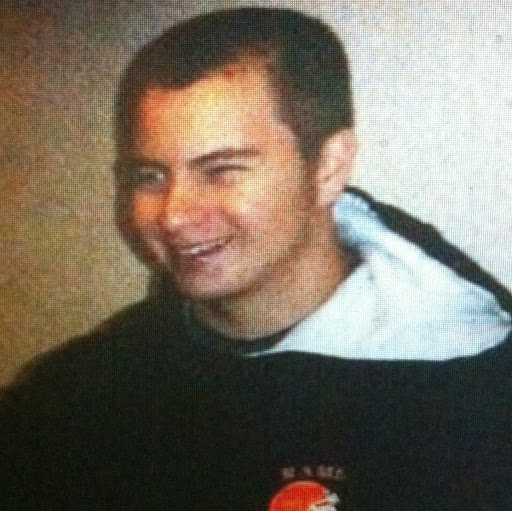Stephen M Epstein
age ~81
from Marana, AZ
- Also known as:
-
- Stephen Tracy Epstein
- Stephen Te Epstein
- Stephen G Epstein
- Steve G Epstein
- Stephen G Boschetti
- Sandra Epstein
- Steve Erstein
Stephen Epstein Phones & Addresses
- Marana, AZ
- 7010 Javelina Dr, Tucson, AZ 85718 • (520)6154532 s
- 703 Potomac St, Alexandria, VA 22314 • (571)4317922
- 713 Columbus St, Alexandria, VA 22314 • (571)3190541
- Prescott, AZ
- Carefree, AZ
- Gaithersburg, MD
- San Francisco, CA
- Scottsdale, AZ
- Mill Valley, CA
- Pima, AZ
- 703 Potomac St, Alexandria, VA 22314 • (520)6154532
Work
-
Company:Avistar communications corp
-
Address:1875 S Grant St # 10, San Mateo, CA 94402
-
Phones:(650)5253300
-
Position:Marketing executive
-
Industries:Computer Integrated Systems Design
Lawyers & Attorneys

Stephen Epstein - Lawyer
view sourceOffice:
Jaspan Schlesinger LLP
Specialties:
Real Estate Sales
Real Estate Leasing
Commercial Law
Buying and Selling of Businesses
Foreclosure Law
Cooperative Law
Condominium Law
Real Estate Brokerage Law
Financial Markets and Services
Construction & Development
Real Estate Leasing
Commercial Law
Buying and Selling of Businesses
Foreclosure Law
Cooperative Law
Condominium Law
Real Estate Brokerage Law
Financial Markets and Services
Construction & Development
ISLN:
907579579
Admitted:
1979
University:
Brooklyn College of the City University of New York, B.A., 1974
Law School:
Brooklyn Law School, J.D., 1978

Stephen Epstein - Lawyer
view sourceSpecialties:
Real Estate
Wills, Trusts and Probate
Corporate
Estate Planning
Wills, Trusts and Probate
Corporate
Estate Planning
ISLN:
907579586
Admitted:
1964
University:
University of Illinois, B.S.
Law School:
Northwestern University, J.D.
License Records
Stephen J Epstein
License #:
3109 - Active
Category:
Nursing Home Administrator
Issued Date:
Jan 1, 1980
Stephen Epstein
License #:
MD3665 - Expired
Category:
MEDICINE
Type:
MEDICINE AND SURGERY
Medicine Doctors

Dr. Stephen Epstein, Rockville MD - MD (Doctor of Medicine)
view sourceSpecialties:
Ear, Nose, and Throat
Address:
HEARING HEALTHCARE, INC
9711 Medical Center Dr Suite 210, Rockville, MD 20850
(301)9462434 (Phone)
9711 Medical Center Dr Suite 210, Rockville, MD 20850
(301)9462434 (Phone)
Certifications:
Otolaryngology, 1969
Awards:
Healthgrades Honor Roll
Languages:
English
Hospitals:
HEARING HEALTHCARE, INC
9711 Medical Center Dr Suite 210, Rockville, MD 20850
MedStar Montgomery Medical Center
18101 Prince Philip Drive, Olney, MD 20832
Shady Grove Adventist Hospital
9901 Medical Center Drive, Rockville, MD 20850
9711 Medical Center Dr Suite 210, Rockville, MD 20850
MedStar Montgomery Medical Center
18101 Prince Philip Drive, Olney, MD 20832
Shady Grove Adventist Hospital
9901 Medical Center Drive, Rockville, MD 20850
Education:
Medical School
Rosalind Franklin University of Medicine and Science / Chicago Medical School
Graduated: 1964
Medical School
Washington Hospital Center
Graduated: 1964
Medical School
Providence Hosp
Graduated: 1964
Rosalind Franklin University of Medicine and Science / Chicago Medical School
Graduated: 1964
Medical School
Washington Hospital Center
Graduated: 1964
Medical School
Providence Hosp
Graduated: 1964

Dr. Stephen E Epstein, Washington DC - MD (Doctor of Medicine)
view sourceSpecialties:
Cardiology
Address:
Medstar WA Hosp Ctr Cardio Rsrc
110 Irving St Nw Suite 4B-1, Washington, DC 20010
(202)8772812 (Phone)
110 Irving St Nw Suite 4B-1, Washington, DC 20010
(202)8772812 (Phone)
Languages:
English
Education:
Medical School
Weill Cornell Medical College
Graduated: 1961
Weill Cornell Medical College
Graduated: 1961

Stephen E. Epstein
view sourceSpecialties:
Cardiovascular Disease, Interventional Cardiology
Work:
Medstar Washington Hospital Center Cardiovascular Research Institute
110 Irving St NW STE 4B-1, Washington, DC 20010
(202)8772812 (phone), (202)8772715 (fax)
110 Irving St NW STE 4B-1, Washington, DC 20010
(202)8772812 (phone), (202)8772715 (fax)
Education:
Medical School
Cornell University Weill Medical College
Graduated: 1961
Cornell University Weill Medical College
Graduated: 1961
Languages:
English
Spanish
Spanish
Description:
Dr. Epstein graduated from the Cornell University Weill Medical College in 1961. He works in Washington, DC and specializes in Cardiovascular Disease and Interventional Cardiology. Dr. Epstein is affiliated with Medstar Washington Hospital Center.

Stephen Edward Epstein
view sourceSpecialties:
Otolaryngology
Otology
Surgery
Cardiovascular Disease
Cardiology
Otology
Surgery
Cardiovascular Disease
Cardiology
Education:
Cornell University (1961)

Stephen Epstein, Rockville MD
view sourceSpecialties:
Ear, Nose & Throat Doctor
Address:
9715 Medical Center Dr, Rockville, MD 20850
Education:
Rosalind Franklin University, Chicago Medical School - Doctor of Medicine
Washington Hospital Center - Residency - Otolaryngology
Providence Hospital - Residency - Surgery
Washington Hospital Center - Residency - Otolaryngology
Providence Hospital - Residency - Surgery
Board certifications:
American Board of Otolaryngology Certification in Otolaryngology

Stephen Edward Epstein, Rockville MD
view sourceSpecialties:
Ear, Nose & Throat Doctor
Address:
9715 Medical Center Dr, Rockville, MD 20850
110 Irving St Nw, Washington, DC 20010
110 Irving St Nw, Washington, DC 20010
Name / Title
Company / Classification
Phones & Addresses
Marketing Executive
Avistar Communications Corp
Computer Integrated Systems Design
Computer Integrated Systems Design
1875 S Grant St # 10, San Mateo, CA 94402
YOUR PIECE OF HISTORY, LLC
7010 N Javelina Dr, Tucson, AZ 85718
Epstein, Dr. Stephen
Ent · Internist
Ent · Internist
9715 Medical Ctr Dr, Rockville, MD 20850
(301)3401355
(301)3401355
President, Neurology, Medical Doctor
Stephen Epstein, M.D., PA
Medical Doctor's Office
Medical Doctor's Office
9715 Medical Ctr Dr, Rockville, MD 20850
PO Box 86425, Gaithersburg, MD 20886
(301)3401355
PO Box 86425, Gaithersburg, MD 20886
(301)3401355
President
Stephen Kupferberg
Medical Doctor's Office
Medical Doctor's Office
11160 Veirs Ml Rd, Silver Spring, MD 20902
(301)9493800
(301)9493800
Us Patents
-
Methods For Sterile Aspiration/Reinjection Of Bodily Fluid
view source -
US Patent:6595979, Jul 22, 2003
-
Filed:Oct 23, 2001
-
Appl. No.:09/999765
-
Inventors:Stephen Epstein - Rockville MD
Shmuel Fuchs - Rockville MD
Ran Kornowski - Ramat-Hasharon, IL -
Assignee:Myocardial Therapeutics, Inc. - San Diego CA
-
International Classification:A61M 3100
-
US Classification:604506, 604522
-
Abstract:Methods for aspiration and filtering of a bodily fluid containing undesired components are provided and for treatment of the bodily fluids in a sterile environment in preparation for reinjection of treated aspirate into a donor subject. The invention methods are particularly designed to facilitate transfection of aspirated cells with angiogenesis promoting molecules without danger to the technician or the donor prior to reinjection of the treated cells, either percutaneously or via a surgical opening via a catheter or injection needle. A pressure actuator attached to the sterile container is used to express treated fluids in precisely controlled volumes. The invention methods include delivery of treated fluids using a hand-held device with audible cues that correspond to an operator-selected injection volume and/or audible cues that correspond to needle penetration depth selected by the operator.
-
Efficient And Selective Adenoviral-Mediated Gene Transfer Into Vascular Neointima
view source -
US Patent:6682728, Jan 27, 2004
-
Filed:Oct 13, 1993
-
Appl. No.:08/136113
-
Inventors:Toren Finkel - Bethesda MD
Raul G. Guzman - Rockville MD
Ronald G. Crystal - Potomac MD
Stephen E. Epstein - Rockville MD -
Assignee:The United States of America as represented by the Department of Health and Human Services - Washington DC
-
International Classification:A01N 6300
-
US Classification:424 932, 424 936, 4353201
-
Abstract:The present invention provides a method of selectively expressing DNA in neointimal cells in an injured blood vessel of a subject comprising administering a replication-deficient recombinant adenovirus which functionally encodes the DNA to the blood vessel at the site of injury, such that the adenovirus remains at the site of injury for a time sufficient for the adenovirus to selectively infect neointimal cells and thereby selectively express the DNA in neointimal cells. In particular, the invention provides administering a replication-deficient recombinant adenovirus which functionally encodes a DNA encoding a protein or an antisense ribonucleic acid. This method can be used to treat restenosis and, relatedly, prevent neointimal cell proliferation.
-
Methods For Controlled Depth Injections Into Interior Body Cavities
view source -
US Patent:6835193, Dec 28, 2004
-
Filed:Oct 23, 2001
-
Appl. No.:10/000851
-
Inventors:Stephen Epstein - Rockville MD
Shmuel Fuchs - Rockville MD
Ran Kornowski - Ramat-Hasharon, IL -
Assignee:Myocardial Therapeutics, Inc. - La Jolla CA
-
International Classification:A61M 3100
-
US Classification:604507, 604117, 60416401
-
Abstract:A flexible tissue injection catheter is used to accomplish injections at a precisely controlled depth of precisely controlled volumes of a therapeutic or diagnostic agent into an interior body cavity, such as the epicardium or myocardium of the heart. In one embodiment, the invention method includes repeated injections at spaced intervals along the myocardium or epicardium of sterile fluid containing autologous bone marrow aspirate to promote angiogenesis. For myocardial injection, depth penetration is controlled by using a catheter that allows the operator to control depth penetration by means of an adjustable needle stop attached to the catheter handle. In another embodiment depth penetration during epicardial injections is controlled by use of an injection catheter having an operator-controlled adjustable needle stop that produces a sensible signal, such as a visible or audible signal, marking each increment of needle tip exposed by operation of the adjustable needle stop.
-
Intramyocardial Injection Of Autologous Bone Marrow
view source -
US Patent:7097832, Aug 29, 2006
-
Filed:Mar 30, 2000
-
Appl. No.:09/868411
-
Inventors:Ran Kornowski - Ramat hasharon IL, US
Shmuel Fuchs - Rockville MD, US
Stephen E. Epstein - Rockville MD, US
Martin B. Leon - New York NY, US -
Assignee:Myocardial Therapeutics, Inc. - San Diego CA
-
International Classification:A01N 63/00
C12N 5/00
C12N 5/06 -
US Classification:424 937, 435384, 435372
-
Abstract:A method of treating cardiac or myocardial conditions comprises the administration of an effective amount of autologous bone marrow. The bone marrow may optionally be stimulated and/or administered in combination with a pharmaceutical drug, protein, gene or other factor or therapy that may enhance bone marrow production of angiogenic growth factors and/or promote endothelial cell proliferation or migration or blood vessel formation.
-
Method Of Using Physiological Markers To Estimate Cardiovascular Risk
view source -
US Patent:7527932, May 5, 2009
-
Filed:Nov 12, 2002
-
Appl. No.:10/495081
-
Inventors:Stephen E. Epstein - Rockville MD, US
Juanhui Zhu - Potomac MD, US -
Assignee:MedStar Research Institute, Inc. - Washington DC
-
International Classification:G01N 33/53
G01N 33/564
C12Q 1/60 -
US Classification:435 71, 435 721, 435 724, 435 78, 435 11, 436506, 436518, 436536, 436 86, 436 87, 436811
-
Abstract:An individual's risk profile for developing a cardiovascular disorder or for experiencing a cardiovascular event is determined by 1) measuring levels of certain stress-evoked proteins including heat shock proteins (HSPs), cytokines, adhesion molecules, chemokines, and the like, or titers of the antibodies targeted to them, or 2) determining the number of seropositive responses to a group of pathogens that have been associated with the presence of atherosclerosis and/or clinical events related to atherosclerosis. The measured levels are compared with clinically derived standards that define the association of these markers with cardiovascular disease. These markers are independent of traditionally recognized risk factors.
-
Genes And Proteins That Home To Developing Microvessels
view source -
US Patent:8420590, Apr 16, 2013
-
Filed:Nov 30, 2007
-
Appl. No.:12/516961
-
Inventors:Anton Wellstein - Washington DC, US
Marcel O. Schmidt - Washington DC, US
Stephan Zbinden - Wabern, CH
Mary Susan Burnett - Fairfax VA, US
Stephen E. Epstein - Rockville MD, US -
Assignee:Georgetown University - Washington DC
MedStar Health Research Institute, Inc. - Washington DC -
International Classification:A61K 38/16
A61P 35/00
C07K 14/00 -
US Classification:514 11, 514 133, 514 137, 530324, 530370
-
Abstract:Described herein are polypeptides that home to developing microvasculature, (also referred to as developing microvessels), such as newly developing microvasculature in mammals, particularly in humans, and to DNA that encodes such polypeptides. These polypeptides are referred to herein as developing microvasculature homing polypeptides. In a specific embodiment, the homing peptides are collateral vessel endothelia (CVE) homing polypeptides, which have been shown to home to collateral vessel endothelia after ischemia.
-
In Vitro Model For The Treatment Of Restenosis
view source -
US Patent:20030100499, May 29, 2003
-
Filed:Aug 29, 2002
-
Appl. No.:10/230390
-
Inventors:Stephen Epstein - Rockville MD, US
-
International Classification:A61K048/00
A61K038/17
C12Q001/00
C12M001/34 -
US Classification:514/012000, 514/044000, 435/004000, 435/287100
-
Abstract:The invention provides in vitro methods useful for screening compositions and methodologies in the treatment and prevention of coronary artery disease and, in particular, restenosis. The invention also provides devices and compositions that are used in the methods.
-
Identification Of Genes Involved In Restenosis And In Atherosclerosis
view source -
US Patent:20030170673, Sep 11, 2003
-
Filed:Oct 2, 2002
-
Appl. No.:10/262659
-
Inventors:Stephen Epstein - Rockville MD, US
Sarfraz Durrani - Arlington VA, US -
International Classification:C12Q001/68
-
US Classification:435/006000
-
Abstract:Methods are provided for estimating the risk of developing restenosis or of atherosclerosis in an individual. Methods and compositions for treating or preventing restenosis or atherosclerosis also are provided.
Resumes

Stephen Epstein
view source
Stephen Epstein
view sourceLocation:
United States
Wikipedia References

Stephen Epstein (Cardiologist)
Plaxo

Stephen Epstein
view sourceChFC, Owner at EF$ Epstein Financial Svcs

Stephen Epstein
view sourceGeneral Manager at Mac Papers
Myspace
Flickr
News

Parents Warned of 'Secondary Drowning'
view source- "It can take up to 24 hours to develop symptoms, although most people if they're going to have a significant event, develop symptoms within about 4 to 8 hours," Dr. Stephen Epstein, who works in an emergency room, said.
- Date: Jun 06, 2014
- Category: Health
- Source: Google

Boston hospitals grapple with aftermath of explosions
view source- Stephen Epstein, MD, MPP, attending physician in the ED at Beth Israel Deaconess Medical Center, said the hospital had treated 21 patients with morbidities ranging from ear damage to life-threatening injuries. In some of the most seriously injured patients, Epstein said, "the limbs are certainly man
- Date: Apr 16, 2013
- Category: U.S.
- Source: Google

Doctor: Metal in Boston bomb victim leg like BBs
view source- Dr. Stephen Epstein of the Department of Emergency Medicine at Beth Israel Deaconess Medical Center says he saw an X-ray of one victim's leg that had "what appears to be small, uniform round objects throughout it similar in the appearance to BBs." He said it remained to be determined what exactly
- Date: Apr 16, 2013
- Category: U.S.
- Source: Google

FBI seeks images in Boston Marathon bomb probe
view source- But Dr. Stephen Epstein of the emergency medicine department at Beth Israel Deaconess Medical Center said he saw an X-ray of one victim's leg that had "what appears to be small, uniform, round objects throughout it similar in the appearance to BBs." He said it remained to be determined what exactl
- Date: Apr 16, 2013
- Source: Google

Mystery of dead man's $180000 cash haul resolved
view source- Fedele, a former business associate of the late Philadelphia music producer Stephen Epstein, told the AP in a phone interview Tuesday that he was interested in transitioning into the movie business, and had gotten interested in Burke after hearing about him from Merlino, a longtime friend.
- Date: Oct 17, 2012
- Source: Google

Death on NYC train platform leads to $180k mystery
view source- Real estate documents show that the Philadelphia house listed in some records as the headquarters of 180 Entertainment is owned by Anthony Fedele, a former business partner of the late Philadelphia music producer Stephen Epstein. Before his death, Epstein was known for being a close friend and occas
- Date: May 03, 2012
- Category: U.S.
- Source: Google

Stephen Epstein
view source
Stephen Epstein
view source
Stephen Ian Epstein
view source
Steve Epstein
view source
Stephen Epstein
view source
Stephen Epstein
view source
Stephen Epstein
view source
Stephen Epstein
view sourceClassmates

Stephen Epstein
view sourceSchools:
Newtonbrook High School North York Morocco 1968-1972
Community:
Cindi Mcgonigle, Marlene Zeidenberg, Penny Rush, Brian Koughnett

Stephen Epstein
view sourceSchools:
Pleasantville Cottage School Pleasantville NY 1965-1967
Community:
Kathe Franke, Don Starkie, Barbara Evensen, David Friedman, Linda Mazza, John Honick, Robyn Greenberg, Carol Myler

Centennial Academy, Montr...
view sourceGraduates:
Stephen Epstein (1978-1982),
Dawn Schneider (1990-1994),
Alice Young (1986-1990),
Jonathan Zachary (1991-1995),
Stephan Kouri (1987-1991)
Dawn Schneider (1990-1994),
Alice Young (1986-1990),
Jonathan Zachary (1991-1995),
Stephan Kouri (1987-1991)

Newtonbrook High School, ...
view sourceGraduates:
Stephen Hochberg (1980-1984),
Stephen Smith (1982-1983),
Stephen Epstein (1968-1972)
Stephen Smith (1982-1983),
Stephen Epstein (1968-1972)

Pleasantville Cottage Sch...
view sourceGraduates:
Stephen Epstein (1965-1967),
Gerhard Adam (1938-1943),
Tamara Cummings (1989-1994),
Philip Sacks (1940-1944),
Arthur Mintzer (1940-1944)
Gerhard Adam (1938-1943),
Tamara Cummings (1989-1994),
Philip Sacks (1940-1944),
Arthur Mintzer (1940-1944)

New York City Community C...
view sourceGraduates:
Stephen Epstein (1959-1963),
Rohit Rohit (2000-2004),
Betty Halpern (1960-1962),
Darin Poullard (1982-1985),
Jemy Rocio 2010 (2006-2010)
Rohit Rohit (2000-2004),
Betty Halpern (1960-1962),
Darin Poullard (1982-1985),
Jemy Rocio 2010 (2006-2010)
Googleplus

Stephen Epstein

Stephen Epstein

Stephen Epstein

Stephen Epstein

Stephen Epstein
Youtube
Get Report for Stephen M Epstein from Marana, AZ, age ~81














